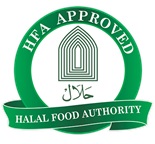
The meat and trading industry has witnessed considerable change recently. Issues surrounding slaughter and stunning methods have been in the spotlight, particularly in relation to animal welfare standards.
New national legislation – the Welfare of Animals at the Time of Killing (WATOK) – will come into play in 2014. Once this comes into force the EU Regulation EC1099/2009 will be implemented. It is under these new rules that the Halal Food Authority has amended its stance on the stunning of poultry prior to slaughter.
An increase in the electronic current used to stun poultry is proposed by EC1099/2009. After attending and witnessing the results of recovery trials carried out in association with the University of Bristol at a poultry slaughterhouse in Spain on the 8th of January 2014, the HFA took the decision to permit water bath stunning of poultry slaughtered in a halal manner in accordance to the parameters set out in Annex I of regulation 1099/2009.
Conditions laid out by HFA stated that the water bath stun shall operate at a minimum frequency of 1000Hz AC, the average current per bird shall not exceed 205mA and stunning and halal slaughtering of poultry in the UK shall only be carried out in the presence and supervision of HFA representative(s) if the operation/production is to be certified by the HFA.
In keeping with halal guidelines, under no circumstance do the HFA permit stunning to kill. HFA permit stunning to temporarily immobilise only.
Poultry houses that are currently certified by the HFA will abide by the above rules from the date that the Food Standards Agency (FSA) enforce EU Regulation EC1099/2009 across the UK.
Along with the change in stunning levels, from 3rd March 2014, the HFA are also ceasing to certify mechanical slaughter of all poultry following a series of consultations and procedural reviews by the Board of HFA scholars and trustees.
Mechanical slaughtering is globally accepted as a halal slaughtering technique by courtesy of numerous scholars but HFA has opted to remove it from their standard due to the difficulties and complexities associated with its monitoring.
Zena Butt is Information Officer at the Halal Food Foundation
